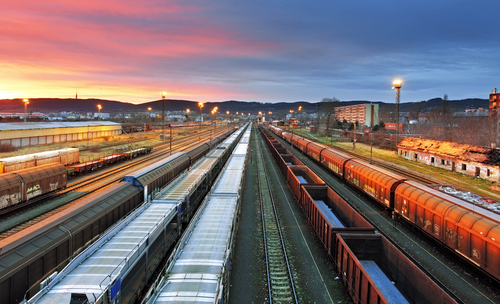
Rail industry stakeholders testified about their priorities and suggestions for future surface transportation legislation during a hearing of the Railroads, Pipelines and Hazardous Materials Subcommittee on Thursday.
Witnesses like Chuck Baker, president of the American Short Line and Regional Railroad Association, said programs that help build and improve the U.S. rail infrastructure network, like federal programs to eliminate rail grade crossings and the Consolidated Rail Infrastructure and Safety Improvement (CRISI) Program, are crucial to railroads. However, witnesses also testified to the need to reduce red tape and delays in receiving rail infrastructure related grants.
“Simply put, CRISI projects need to move from announcement to obligation to completion faster than they currently do. For almost all short line projects, most of which are quite simple in the context of infrastructure investments, this would result in better outcomes for the public, for short lines, for communities, and for shippers with no additional risk, and would help avoid the significant cost escalation associated with delay,” Baker said. “Whether it be through batch processing of NEPA categorical exclusions, more aggressive use of pre-award authority to allow projects to get going immediately upon award, the blunt instrument of just setting deadlines for agency processing, or all of the above, Congress can and should insist that this process move faster.”
Other witnesses said the programs need to be more efficient, and that permitting needs to be reformed to speed up the process of building out the rail infrastructure.
“The speed at which grant agreements have been executed has been way too slow.,” National Railroad Construction & Maintenance Association Chairman Joe Daloisio said. “By the time the construction phase begins, a number of variables, most notably the increase in costs, jeopardizes the successful execution of these important projects. We encourage Congress and the new Administration to deliver grant funding in a responsible but more expedient manner.”
Railroads, Pipelines, and Hazardous Materials Subcommittee Chairman Daniel Webster (R-FL) said the surface transportation authorization will be a topic of discussion this legislative session.
“As you know, the current surface transportation authorization expires this Congress, and discussions have begun assessing the nation’s infrastructure needs, Webster said. “The Committee’s work on surface reauthorization legislation will require us to be both principled and pragmatic. Building and supporting America’s rail network involves cutting red tape, improving safety through technology and innovation, encouraging private sector involvement and competition, and decreasing dependence on government funding and control.”